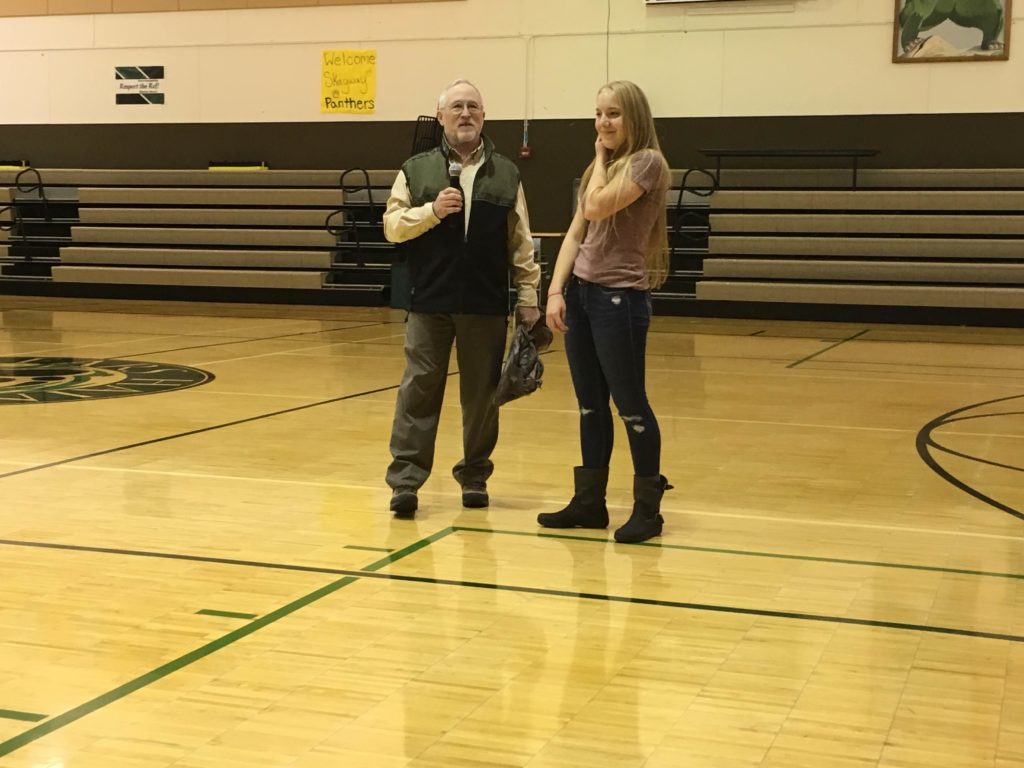
Jordan Stigen answered the question ‘when you flip up the switch, why do the lights come on?’ (Abbey Collins)
One Haines high school student is set to travel to Cape Canaveral, Florida next month, to see the launch of a new satellite that could bring faster internet to Southeast. A winning essay earned the student a spot at the launch.
The Anchorage-based satellite communications company Microcom sponsored the writing contest and asked high school students throughout Southeast to answer one question.
“When you flip up the switch why do the lights come on?” says Tom Brady, the Chief Technology Officer at Microcom. They work with the satellite internet company HughesNet, which is set to launch a new satellite on December 16.
“We wanted to get the word out that there’s a new satellite service in town,” says Brady. “We decided one was to do that was to get with the high schools in Southeast and have a contest to take somebody to the launch.”
When Jordan Stigen was announced as the winner of that contest at a school assembly, the gym erupted with cheers.
“I had originally asked my dad what he thought, how we got electricity,” says Stigen. “He said because I pay the electric bill.”
In her essay, Stigen expanded beyond her dad’s wisdom.
“I kind of started it out with just asking a lot of questions within my first paragraph just about how people get electricity and about light,” says Stigen.
She wrote about key people that contributed to advances in electricity, and then she brought it home to Haines.
“I kind of ended it with actually saying how we in Haines specifically get electricity from Skagway and the hydroelectric dam there and stuff like that,” says Stigen. “And then I ended with the quote from my dad.”
Her essay won Stigen a seat at the launch. Brady says the new satellite being sent into orbit will improve HughesNet’s broadband service throughout the United States.
“One piece of that satellite provides broadband service to Southeast Alaska,” says Brady.
He says the company’s current service is just a fraction of what will be possible.
“It will expand the satellite broadband capabilities in the Southeast by an order of magnitude,” says Brady.
Brady says that is a big deal for Southeast.
“This is kind of not so much a first for the state of Alaska but it’s a first for Southeast,” says Brady. “We have another broadband satellite provider called Exceed which provides service in the Anchorage area all the way up to Kotzebue and Nome. That service is almost identical to what Hughes is going to provide.”
This move by Microcom and Hughesnet is happening just as AP&T recently installed a fiber optic cable to improve their internet service in the region. If the launch is successful, Brady says the satellite should be up and running by February or March.









So proud of our granddaughter!! Love & hugs from MeMe & PaPa Jim – Mesa, AZ